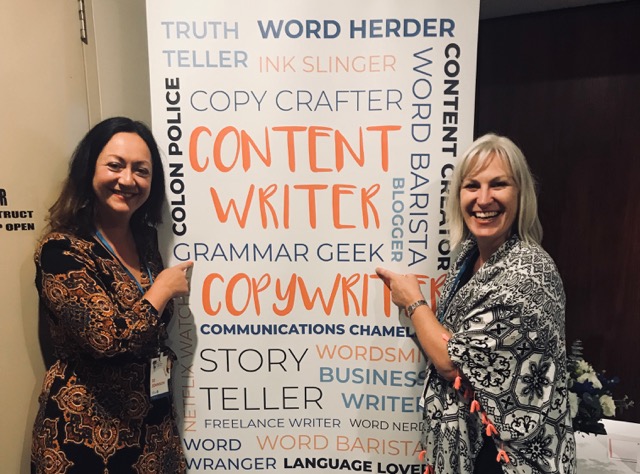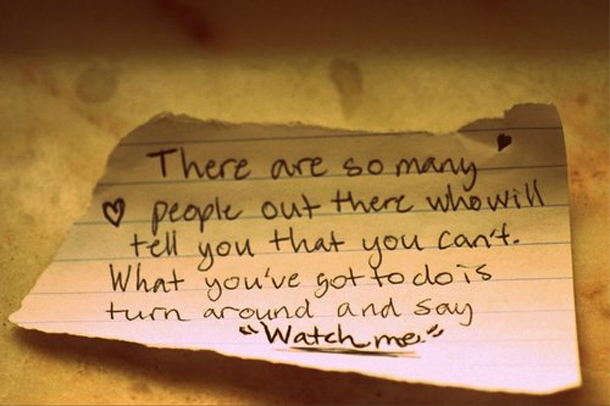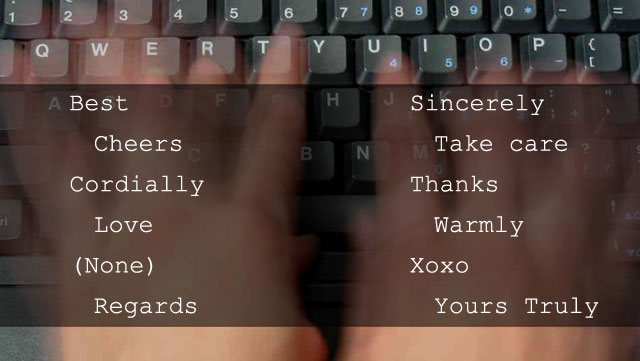Is your business persona solid to its core?



It’s easy to view yourself as an ‘expert’ once everyone else does. You get asked to speak on certain topics, requested for input into articles, and invited to sit on panels – for me that’s being a copywriter, a content coach, a marketing coach. You could be forgiven for thinking to yourself: I’ve got this. I reckon I know my stuff – (finally!).
And then suddenly you realise a couple years have gone by and you haven’t really done much ‘professional development’ or learnt anything super new in your specific field of expertise. Or along the way you’ve diversified, and the thing you’re known for is only one small string to your now blossoming bow.

Christopher is muscular and tanned but lithe, like most of the men around here. They work, physically, for most of the day, every day of the week. His hair is long and dark, tousled and unkempt, and his eyes are dark but dancing. He has that relaxed way of wearing a shirt with the top few buttons undone and the sleeves rolled up, exposing strong forearms and a brown chest, that is suggestive, but not on purpose. He swaggers gently, meaningfully, and takes his time to construct his sentences, tasting every word in his mouth, ensuring they’re the right ones. The words finally fire out at warp speed, defying the calm countenance from which they emit.
He then sees us, shrugs to his friend, and says: “G’day, are you guys from Australia? I’m from Brisbane.”
Whaaaat?

I was thrilled to be part of the inaugural Sorrento Writer’s Group Author Event on Saturday. The event provided the chance for local authors to exhibit their wares and to connect with each other and their community, as well as for the Sorrento Writer’s group to let people in on what they’re about.
The opportunity to exhibit came to me at the 11th hour; I’m not a part of the Sorrento Writer’s Group nor do I reside on the pointy end of the Peninsula where most of the publicity was being focused. Happily though, it was by helping one of the members of my Facebook group (The Content Couch) with her table set up for the event that I became aware that this could also be a useful place for me to be.

It’s school holiday time (in Vic anyway)…and you know what that means?
It’s the juggle struggle of running a business whilst running the social lives of your children at the same time!
And even if you don’t have kids, you’ll probably experience that deafening silence when you email one of your clients or that cagey low-talking when they answer the phone. Because chances are they’re dealing with a child tugging at their attention, wanting to be fed, wanting a cure for boredom, wanting to make noise the minute they get on the phone. It happens to the best of us, even with the most well-intentioned children and the most carefully organised activities – they just NEED you when you are the phone.
So, how do you deal with this predicament? How do you manage to do all the things you have to to keep your business ticking whilst you have the kids home from school? You can’t always take weeks off every time the school holidays roll around, nor can you palm your kids off the entire time (or can you???) Continue reading →

Do you get nervous whenever you have to send something out, worrying that it won’t be exactly right?
Do you cringe every time you’re about to press publish on Facebook?
Do you muck around with your sales pages, your marketing materials, your emails to the point of spinning in circles? Or even worse, to the point of not sending them out at all?
You know that there is no such thing as perfection when it comes to creating content for your business, right? It is simply impossible to get to this mythical point called ‘perfection’ because the truth is that you can continue to make changes and improvements for ever! Creative work will never be perfect, but at a certain point, you must just decide that it is done.
An old CEO of mine once said: “Don’t let perfection get in the way of progress.” I didn’t realise how true that was until I started my own business. You see, it’s always easier to let go of the content when it’s not your baby that it relates to. Not that I was ever sloppy or slapdash with my content previously, but when I was writing for other brands, the attachment simply wasn’t as high as it is with my own; it was easier to let it go at ‘really good’ versus ‘outstanding’.
It’s perfectly normal and understandable for any business owner who has vested endless energy and effort into getting every little detail of their business just right, to want to get every single word perfect. What I’m going to suggest however, is that you may need to lower your standards a bit. Now, I’m not saying to put out low-quality content by any means, but if your standards are so high that you never actually reach them, you are in fact inhibiting your own growth. How will anyone get to know, like and trust you if they never hear from you? How will prospects understand where you position your services if you don’t talk about them? It is important to strike a balance and have standards that are achievable.
Perfection paralysis is a real thing. But it’s not a good thing if you want your business to expand.
Here are 4 considerations that may help you to embrace imperfection.
Author, Brene Brown, summed up this irony beautifully in her book Daring Greatly: “Perfectionism crushes creativity – which is why one of the most effective ways to start recovering from perfectionism is to start creating.” Perfectionism can cause us to stop creating before we even get started simply due to fear that we won’t live up to our own standards. Ridiculous but true! And the more we do this, the more it continues to occur. The reality is that self expression and creativity are inherently messy and imperfect.
Take the example of painting. In our culture, most adults refuse to pick up a brush and paint a picture because they think they can’t create something worthwhile. Head to any kindergarten or preschool however, and the room will be filled with enthusiastic painters, all creating their own masterpieces freely and excitedly. They have not yet learnt the meaning of perfectionism. Their messy, imperfect paintings are beautiful!
Building relationships with people is the primary purpose of business content, therefore, when creating content it may help to think about it like a conversation. When you talk to someone you don’t plan every word you are going to say ahead of time. You may hesitate or struggle for words but that doesn’t reduce your ability to connect with that person. In fact, showing some ‘humanness’ and imperfection often makes you more relatable. Remember the old saying ‘nobody is perfect’? Well it’s true! So stop trying to be. If you’re aiming to provide a flawless image in your business comms you may actually be doing damage to your brand. Why? Because you raise questions and concerns amongst your readers about the possibility of perfection. You alienate them by making them feel less than worthy, which is the opposite of what you want to do with your content.
Short-term content pieces, such as emails and blogs, unfortunately don’t get read all the way through by up to 70% of viewers. Sad but true! Most readers skim read these pieces of content. So, as far as perfection goes, it may help to realise that your audience is NOT nit-picking your content nearly as much as you are!
As business owners we should always be trying and testing and measuring new things. As entrepreneurs and innovators – that’s what we do! Inevitably, it won’t all land perfectly. Viewing this as ‘failure’ however, is not useful to anyone. Rather think of it as R&D – research and development. The more you try things out, the more information you uncover, which helps you to do it better or differently next time. And since nothing is ever perfect, everything is a test!
Stop aiming for perfection, and start seeking out the beautifully imperfect. It is there that you learn and grow.
Let me know if you struggle with perfection….I can help.

There’s absolute validity in knowing what your competition is doing. And there are very good reasons to study those in your field, particularly if they are ahead of you in skill or experience. HOWEVER, there is also real danger in obsessing about who’s doing what, when and why, and how much more they’re earning/doing than you are.
Think for a minute about how many days and how many brain cells you’ve wasted this year worrying about her over there….or him down the road. Think about how many grey hairs you could have saved yourself by not stressing about the fact that so-and-so seems to be everywhere doing everything, whilst you’re stuck behind a computer trying to make ends meet.

As a business owner there is nowhere to hide when things get tough. There is no boss to look up to, and often no subordinate to blame! It is you and you alone who needs to take responsibility for whatever is going on. So how do you find the confidence to step up and out when it matters most? How do you continue to find the gumption to communicate your message and your value?
Is it being so comfortable in your own skin that nothing and noone else matters?
Is it the feeling that you can be relied upon?
Or is it the slightly irritating attitude of bravura, of highly opinionated people?

While content marketing has been a very hot topic for the last few years, many companies and marketers still do not understand how to use it and why it is so effective. Understanding the importance of content marketing and ways of efficiently using it could be a turning point for your business’ success.
First of all, did you know that approximately 26% of desktop users and 15% of mobile consumers are using ad-blockers to remove any advertisement on websites they are visiting? (ref: Interactive Advertising Bureau study, July 2016). These numbers are huge, and it is a good indication that traditional marketing is losing its power. Paid advertising was THE way to spread brand’s message in online marketing, but not any more. Ad blocking is on the increase, which is great for consumers, but a terrible trend for marketers who rely heavily on paid advertising. Luckily, there is still a way to get cut-through with your message.

I asked some people in my Facebook community a little while ago about how they signed off their emails and whether they had put much thought into the language they used. The question was prompted by an interesting email sign-off I had received the day before: ‘To Higher Conversions, Clay Collins.” He’s the dude who sends me information from Leadpages, the landing page application I use. This sign-off is perfect for him and his business – helping people creating landing pages that convert visitors to customers – and is highly memorable for that reason.
Most of the people who responded to me hadn’t put much thought into their own sign-off. They were simply using the same words they had been using forever – mostly as a layover from corporate days. It got the creative juices flowing – mine and theirs – as to better ways to sign off emails to their clients and prospects.
But why is a sign-off important? Why should we even bother thinking about it? Because how you sign-off or close your email sets the tone for the email and leaves a lasting impression on your reader. It can also make or break the intention, and therefore ‘success’, of your email.
Obviously there are different styles of writing for business emails versus personal ones, and so too should your sign-off be different. There is one thing that EVERY sign-off requires however – your name! Whether it’s first and last or your first name alone depends on the level of formality. Usually the first time you write to someone you will include both your first and surname; subsequent communications will probably only require your first name. And if you’re writing to a close friend or family member you may even use your nickname.
The sign-off itself will also depend on the overall tone you are trying to achieve and also possibly the intended meaning of the email content. For instance, you wouldn’t use “Yours truly” in a business email; it’s too familiar and warm and usually reserved for close relationships. On the other hand you wouldn’t simply use “Regards” if you were trying to build a relationship with someone and sell them your counselling or coaching services! It’s highly unemotional and could be considered terse.
You may like to consider using a sign-off that is reflective of your personality or individuality (“Sparkles and light” if you’re a cosmic cat!). I like to encourage clients to use words that reflects their business value or offering. For example, a naturopath may use “Yours in wellness”. A life coach might use: “To your health and wealth”. A travel agent might say: “Here’s to great adventures.” There are endless possibilities – most of which will be far more meaningful and memorable for your reader, (whilst still being appropriate), than boring old “Regards” or “Best wishes”.
Here are my four rules for signing off on emails:
Here is a list of some common and not-so-common sign-offs with a bit of commentary attached!
Best – Totally safe but can be a little lonely on its own.
All the best – This is better and harmless. A good one for a wide variety of recipients.
My best to you – A little old-fashioned.
Best Wishes – It’s a little like a birthday card sign-off from your work colleagues but it’s not bad.
Bests – Too fussy and terrible if you have a lisp!
Best Regards – More formal than “Best wishes.”
Regards – Fine and helpfully briefbut a little dull and not very warm.
Kind regards – Warmer and better than plain “Regards” if you want some formality but are building a relationship. I use this often.
Rgds – OK if you’re sending it from your phone but it wouldn’t kill you to type the other 3 letters!
Warm Regards – I like this for a personal email to someone you don’t know very well, or a business email that is meant as a thank-you.
Warmest Regards – As good as Warm Regards, with a touch of added heat.
Cordially – Very old fashioned and always reminds me of cordial…the drink…from the 70s…
Take care – In the right instances, especially for personal emails, this works. I use this when the email content warrants it.
Thanks – I’m not convinced this is a sign-off as such, but it would depend on the content of the email.
Thanks so much – I use this when someone with whom I have a business relationship has put time and effort into a task or email.
Thank you – More formal than “Thanks.” I use this sometimes.
Many thanks – I use this when I genuinely appreciate the effort the recipient has undertaken.
Thanks for your consideration – Quite formal, but would definitely work in the business context where you are submitting an offer, idea or proposal. Be careful though as it could be seen as almost asking for a rejection.
Thx – I don’t approve of this in emails but in a text between friends and familiars it’s ok.
Hope this helps – I use this one when I am offering solicited advice to help the recipient.
Continued success – You’d want to be sure they had initial success before using this!
Keep up the good work – As above! This can be useful however, if messaging a coaching client who has sought feedback on something from you.
Be well – I find this a bit grating. Not appropriate for a business email.
Peace – Suitable if that’s your business or personality, but pick your audience.
Yours Truly – Very much an old fashioned way to sign off. Think: your 9 year old pen pal or estranged auntie!
Very Truly Yours – VERY VERY old fashioned.
Sincerely – OK for some formal business correspondence, but reeks of lawyers and accountants to me.
Yours Sincerely – Same as “Sincerely,” but even more so!
Looking forward to your reply – This works when you genuinely want a reply from your recipient!
Cheers! – I use this sometimes for familiars. It’s quite a British/Aussie thing. Be mindful of using this with Europeans or Americans.
Have a good one – Again, very Aussie. Be mindful of how this could be misconstrued too. Have a good what???
Ciao – I like this in playful personal emails. But then I love everything Italian!
-Your name – Terse but ok except if it’s an initial email. I’d always try to combine an actual sign-off with your name.
-Initial – Good if you know the recipient really well and even fine in a business context if it’s someone with whom you correspond frequently.
Love – Way too informal in the business context for me. This could be off-putting for some.
XOXO – Not a good idea in business emails. Save the kissses and hugs for your bestie or partner.
Lots of love – Only for personal emails.
Hugs – It’s hard to imagine this in a business email but it’s great when you’re writing to your granny.
Smiley face – Emoticons are increasingly accepted, though some people find them grating. Be mindful that they may reproduce incorrectly when read through some email applications so will appear as [smiley face] rather than the actual picture of a cute little yellow face.
Take it easy – Highly informal and may not be read as intended. Be careful using this with people you don’t know well.
See you around – Same as “take it easy”. Are you literally going to see them around or figuratively?
Sent from my iPhone – This used to bother me but I realise that it can explain brevity and typos (which I hate, regardless of the device being used!). I would prefer people don’t know whether I’m at my desk or on the move, so I don’t use this.
Typos courtesy of my iPhone – No excuses peeps!
Pardon my monkey thumbs – Same problem here.
Please consider the environment before printing this e-mail. – A bit preachy and a bit early 2000s. Who doesn’t know that printing uses paper?
Lengthy disclaimers – We’ve all seen these and ignored them, though I understand that many companies require them.
The final word:
Your closing needs to be inline with the overall tone and demeanour of your email. If it’s completely at odds it will be jarring and will leave the reader wondering what they’re supposed to do or feel next. The sign-off is the icing on the cake to ensure your message is received as intended and there is no room for misunderstanding.
By taking your time to choose your words carefully, your sign-off will become another demonstration of how wonderful it is to communicate with you!
